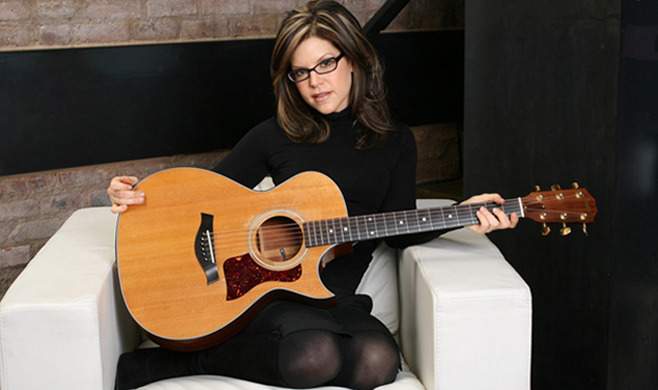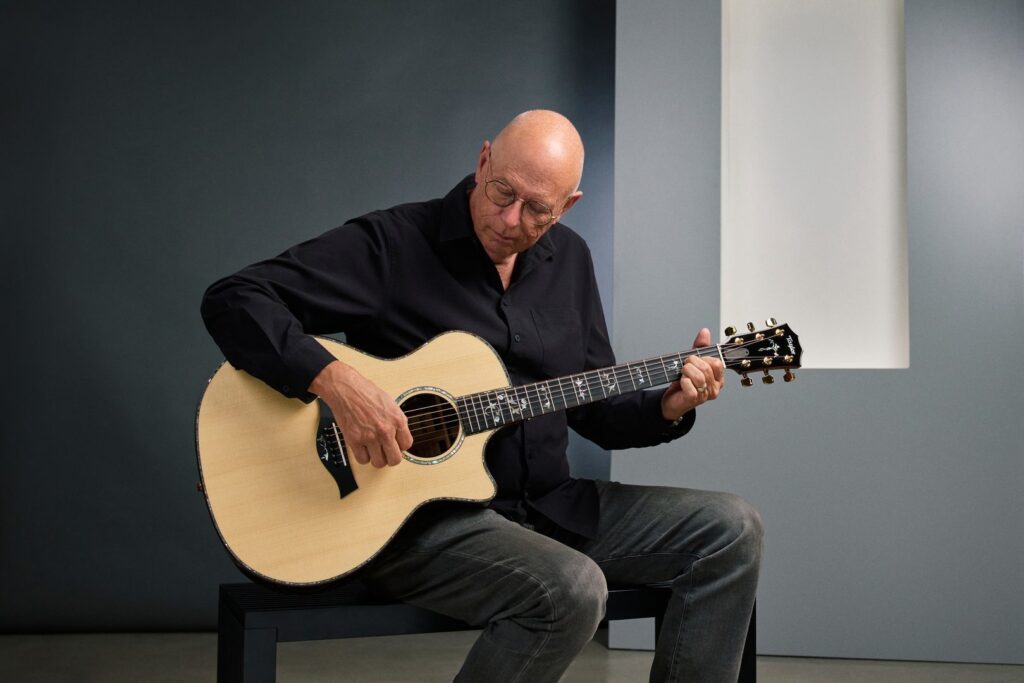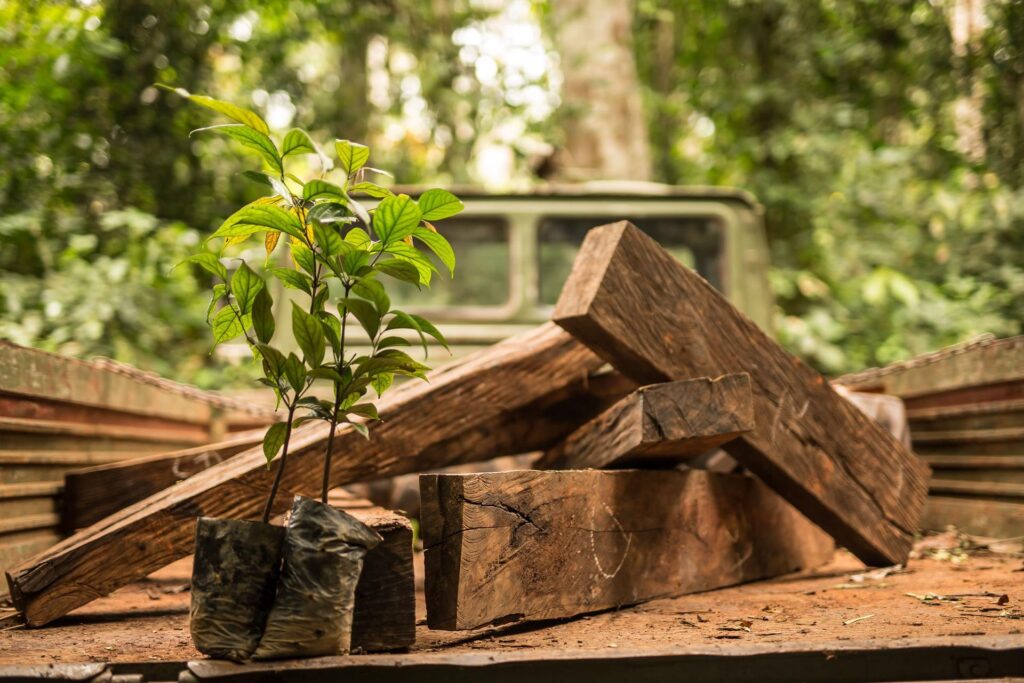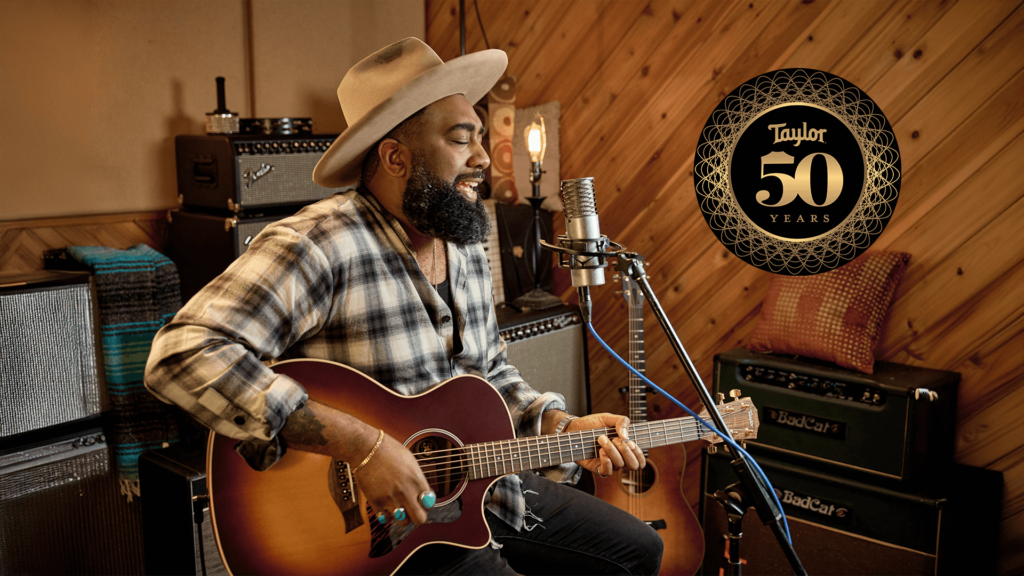If you were around in the nineties, you’re probably familiar with Lisa Loeb. The bespectacled singer-songwriter may be known best for her ubiquitous 1994 hit “Stay (I Missed You),” which was the first ever song by an unsigned artist to land the top spot on the Billboard Hot 100. But in the two decades that followed, she’s transcended the memory of that single and crafted an impressive career in a variety of mediums, from film to non-profit work to music. Case in point: Loeb’s 2016 album Feel What U Feel recently won a Grammy for Best Children’s Album, and she’s already released the follow-up, Lullaby Girl, on which she covers songs by artists like Fleetwood Mac, The Ronettes, and even Ella Fitzgerald.
We chatted with Loeb about buying her first Taylor guitar nearly thirty years ago and why her music is made for listeners of all ages, and asked if she ever gets sick of playing the song that made her a household name.
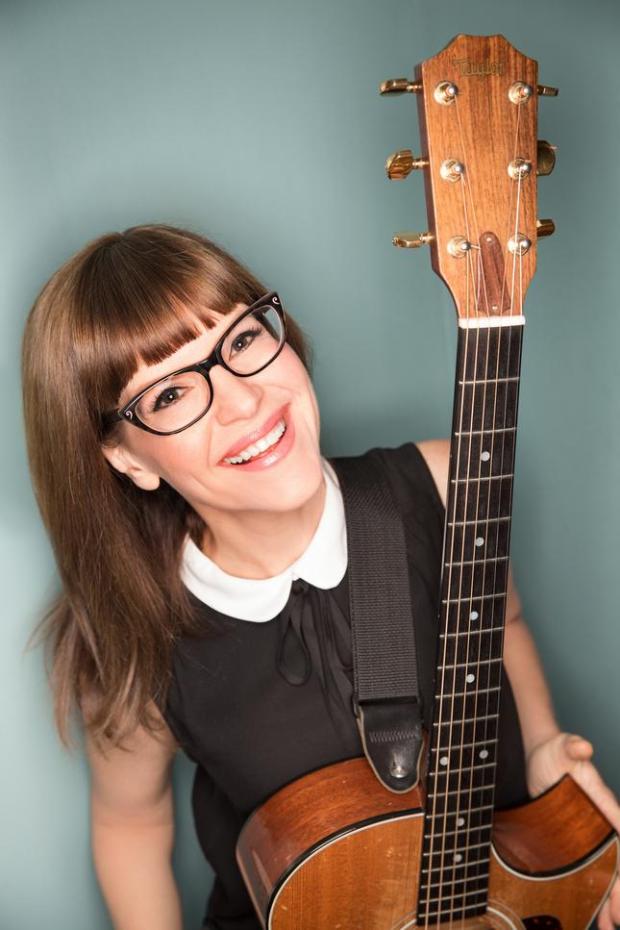
Which Taylor guitars do you play?
I play a custom 512c bought at Matt Umanov Guitars, so the neck is a little bit thinner and it has old tuners on it. I’ve had it since 1989 or 1990. I have another Taylor I play and it’s also a 512ce but it’s a regular one, not a custom guitar like my first one.
What drew to you to that original guitar?
When I was in college at Brown University, I came to New York City with my friend Elizabeth Mitchell, who was my collaborator for about six years, to make a demo tape with a guy named Jon Gordon. He used to play with Suzanne Vega. He had a Taylor guitar and I had never played one before. I got to use his guitar in the studio and it just played so easily and it stayed in tune, and we were able to mic it up in a way where even though it was a smaller guitar, we were able to get a lot of clarity and bass out of it. It was a perfect fit for me.
Did you specifically seek it out at the shop?
I was actually playing another brand at the time, but that guitar was stolen out of my car in Dallas. When I got my insurance check I thought, “The guitar I really loved to play was that 512c.” So, I went to Matt Umanov’s shop in New York and I picked one out. But again, it had already been custom designed: It’s simple-looking, but some of the decisions Matt had made putting it together made it different from how it normally comes. The action was so good, tone was so good, the ability to mic it in different ways sounded great in the studio, to be able to play it live—all of those things were important to me.
Why was having a cutaway important to you?
Well, I write a lot of my songs in a key that’s too low for my voice, so I end up capoing the guitar to sing with it. I also do a lot of picking very high on the neck, so [the cutaway] made it really easy for me to reach up to play songs in the right key and play how I wanted to higher on the neck.
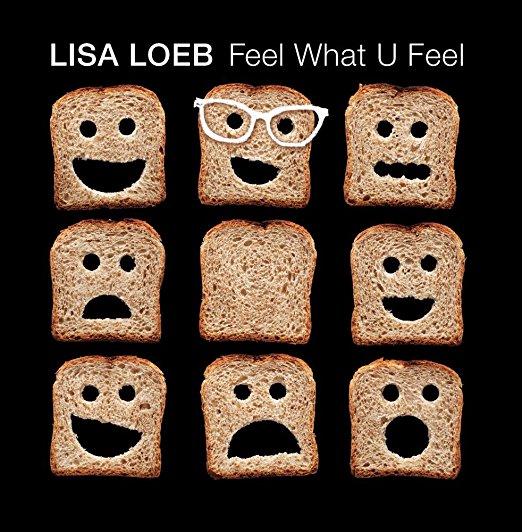 What was it like to discover you’d been nominated for a Grammy for Feel What U Feel? Is waiting for the awards show nerve-wracking or exciting?
What was it like to discover you’d been nominated for a Grammy for Feel What U Feel? Is waiting for the awards show nerve-wracking or exciting?
It’s really exciting. I had my first Grammy nomination in 1995 and I’ve been making music since then, so to have that seal of approval, even if it’s just a nomination, is a great way to connect with other professional musicians again. I’ve been in the music community for a long time and I know a lot of different people that do a lot of different things, but this kind of thing also catches the attention of people outside of the music business, which is important because there’s so much music out there.
Feel What U Feel is the second of three records I made for Amazon, my record company. It’s a children’s album—I call it “family friendly”—but it’s nominated in the children’s album category. I think my album, as well as the other albums in that category, connect with people because they don’t necessarily sound like kid’s albums—they just sound like they’re telling a story, using imagination and a lot of different sounds. It’s not kiddie music.
The first album I made for Amazon [2015’s Nursery Rhyme Parade!] was really made for children; it was a nursery rhymes record. The most recent one I made [2017’s Lullaby Girl] is almost more for grown-ups—it’s a lullabies record and it’s a collection of songs I like from different eras, including “Be My Baby” by The Ronettes, “Don’t Stop” by Fleetwood Mac, and some classics like “A Dream Is a Wish Your Heart Makes” from Disney and “Dream A Little Dream,” songs that incorporate wordplay about sleeping or dreaming or the day passing and a new day coming.
Feel What U Feel is the record I made in the middle of those three records and I’m also really excited that it got nominated because I’ve been making records so quickly lately that sometimes they pass along in time before you have a chance to fully put enough attention on them or get them in the limelight. And those are just my Amazon records. I made a bunch of family-friendly records before those as well.
It seems like you’ve had such a prolific output over the course of your career. What’s your songwriting process like? Do you write every day or only when you’re inspired?
I’ve always been more project-oriented than anything else. When I was in college, my friend and I would write enough songs until we had a record and then we would make a record. Then when we had enough songs again, we’d make another. Lately, with the kid’s records, I’ve been thinking a lot more thematically, which is kind of fun. I’ve been writing for so long that’s nice to have a structure to work with, stories and things like that. I also wrote a musical and that’s very structured, it has direction built into it.
That being said, I am always collecting ideas as a songwriter; I think of different phrases and words and melodies and things and I’m always collecting those wherever I go. When I’m getting ready for another project I start finishing up songs and thinking about what kind of songs I don’t have that I want to write. It’s done in every which way that you can imagine. If someone asks me to write a song for a movie, I’ll write a song for a movie. If someone asks to collaborate on a song with me to sing at fundraisers, we’ll sit down and write that song. Sometimes they just have a feeling or an idea and I write that song.
Do you like the fact that you’re able to do so many styles of writing as opposed to always working on the same types of songs?
Yeah, I think it’s really important as a musician and creative person to continue to be inspired. I personally continue to find inspiration by playing with different instruments or different approaches, which is the reason to make music in the first place. It’s really a variety of things so I’m lucky that so many things are inspiring to me.
How did you get interested in family-oriented music, and why do you think it lends itself to acoustic guitar?
For my newest album, Lullaby Girl, I needed a piano for a lot of the songs. For me, family-friendly music is about storytelling, and it has a lot of interesting details. It doesn’t always gear itself toward guitar, I have to say, but it is helpful to have music that I can pare down to one instrument and a voice, or even a capella sometimes. With my kind of kid’s music, there’s a certain realness and earnestness to it, even when it’s silly, or has a rock edge or pop edge or country edge. Those kinds of songs you can always play on guitar or piano.
It’s nice that parents can enjoy it, too, because children’s music hasn’t always been that way.
What’s important to me, and I know a lot of people who make kid’s music now, is to have songs that stand on their own. It’s not just a silly trick you’re doing with a song that kids can sing along to, you want a really solid song. I think songwriters always come down to that: They want a really solid song that you can perform with one instrument or a capella, so I think that’s why guitar lends itself to that style. Also, guitar is one of those “gather around” instruments where kids come in close, which is one of the reasons I like writing on acoustic guitar. I like privacy and being kind of quiet when I’m working on music; I started writing on piano and then on electric guitar, but I think acoustic has a special place.
What’s it like to be an independent artist in 2018?
It’s exciting that I can reach so many people so easily. Nowadays, you can really get music to people directly. As far as the creative side of being independent, I’ve always been that way and luckily, I had a song that went to number one when I wasn’t even signed with a record company. I’ve always felt that freedom and confidence in following my vision. It still is tough, just like it was back in the day with major labels; there’s so much out there that marketing and actually reaching people to let them know your music exists is really important. So that’s always a challenge. It always has been and I think it always will be. But I think we have a lot of tools now that we can use to try to reach people who might be interested.
How do you look back at that era of the mid-nineties when “Stay (I Missed You)” was the number one song in the country? Do you have fond memories or is it more of a whirlwind?
It was a really exciting time! I’m really lucky that I still connect with the stuff I was making at that time. The music, the production, everything is just timeless, and I’m lucky that the choices I was making at the time are seamless to what I do now. Plus, I have really great fans to go along with that. I can’t believe it’s been over twenty years, it’s kind of crazy to think about.
Do you ever get sick of playing “Stay (I Missed You),” or is it still fun for you?
It’s still fun for me just because of people’s reactions. People are so connected with the song, I can see it in their faces: They’ve got very emotional connections to it, they’ve got humorous connections to it, they have memories of it throughout their life. It might be a song they listened to in high school, and then sang with a friend in college, and then listened to as they went through a divorce. Intellectually, for me, there are so many artists where I have a connection with one of their songs or one of their albums, so I really understand that from the audience’s perspective, and the performer’s side, too.
I know you’ve done a lot of projects people might not expect, too. For example, I remember at one point you covered “Stay (I Missed You)” with the pop-punk band New Found Glory.
Oh yeah, I love those guys. [New Found Glory guitarist] Chad [Gilbert] and I made a whole record together called No Fairy Tale. See, there’s so much music out there. You’ve got to let people know it exists! We made a really cool record. Tegan and Sara did a song on it with us, he played guitar and we co-produced it.
It’s difficult to keep track of what you’ve done at this point because there’s so much. Do you see yourself continuing in this direction, doing project after project and seeing what happens next?
Yeah, exactly. I’m always trying to figure out what feels true to me and what I want to make. Now with my ability to communicate with fans, I’m also interested in seeing what they think or if they have any thoughts about what resonates with them. The ideas are endless.
























